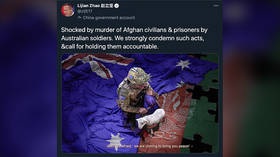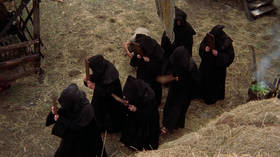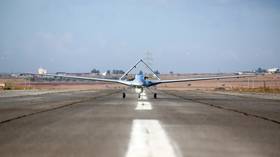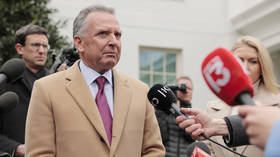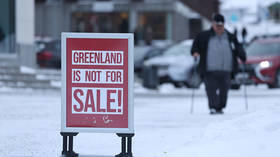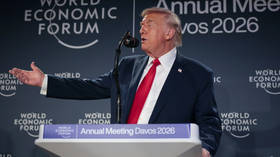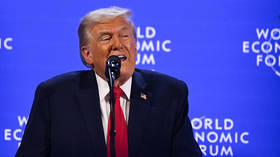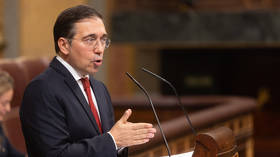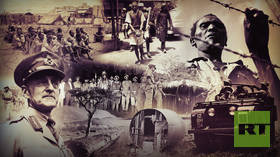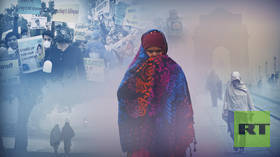Lions led by cowardly asses? Bungling Aussie defence chief covers up war crimes scandal to save officer mates... and himself
Blaming ALL the squaddies and exonerating ALL the top brass for the murderous behaviour of troops in Afghanistan not only looks terrible, but is unsustainable. It’s time for military leaders to take responsibility – or be sacked.
Over the past few days the crisis created by the release of the Brereton Report into war crimes committed by Australian troops in Afghanistan has intensified – and Prime Minister Scott Morrison has been forced to intervene to clean up the mess created by the chief of the defence force, General Angus Campbell.
Last week Campbell enthusiastically endorsed the key findings of the Brereton Report. It found that 25 soldiers had committed atrocities in Afghanistan (apparently without the knowledge or their superior officers). Brereton also exonerated upper echelon officers from any responsibility for these appalling war crimes, despite long-standing protocols that officers are responsible for the conduct of their troops whether or not they ordered them, knew what they were doing, or had the means to stop them.
Campbell was quick to condemn the 25 squaddies who had committed war crimes, but then went on to condemn all the 3,000 Australian troops who served in Afghanistan by recommending that the Meritorious Unit Medal which had been collectively awarded to all of them be revoked.
In the past few days, however, public outrage and intense media criticism have forced Prime Minister Morrison to intervene and reverse Campbell’s unprincipled and self-serving response to the Brereton Report.
On Friday Morrison gave a radio interview in which he said that he had told General Campbell in the clearest possible terms to make sure that “not only is there accountability in the defence forces for individual alleged acts, but also in the chain of command”.
In doing this, Morrison was responding to widespread criticism – particularly from veterans’ organisations – which poured scorn on Brereton’s clearing army commanders of any responsibility for what occurred in Afghanistan.
This extraordinary intervention from the prime minister has put General Campbell in an untenable position.
Morrison has now effectively directed him to disregard a key finding of the Brereton report – namely, that upper echelon officers bore no responsibility for the atrocities that occurred in Afghanistan.
Precisely how Campbell will hold senior officers accountable is not clear.
Is he to commission yet another enquiry? An added complication, of course, is the fact that Campbell was personally in charge of Australia’s forces in Afghanistan in 2011-2012. Is Campbell now expected to make adverse findings against himself if warranted? The prospect of the general tearing a strip off himself in the mirror is tantalizing, but unlikely to happen.
Also on rt.com ‘Apologize to the Afghan people’: China scoffs after Canberra demands Beijing retract poster about Aussie war-crime reportMedia reports on Monday stated that Campbell has personally spent the weekend poring over lists of senior officers who commanded troops in Afghanistan with a view to determining what disciplinary action is to be taken against some of them. A case of step forward, Colonel Scapegoat? A number of these officers received awards and medals personally approved by Campbell and the current chief of the army, Rick Burr.
Where is due process in all of this?
The Defence Department has put out a statement saying that it is working on a “comprehensive implementation plan” in respect of the Brereton report. What a joke!
Not surprisingly, there have been widespread calls for Campbell to resign immediately.
One retired special forces officer said publicly that Campbell’s handling of the Brereton report was “un-Australian” and that he had “never heard of anything worse.”
The response to General Campbell’s revocation of the Meritorious Unit Medal has also been overwhelmingly critical.
One commentator described it as “a disgraceful knee-jerk action.”
One former officer said on Friday, “The families of our fallen heroes face the prospect of having honours stripped from their loved ones and their ultimate sacrifice reduced to scandal.”
The father of one soldier who was killed in Afghanistan told Campbell that if he wanted to take back his son’s medal he would have to “collect it from his gravestone.”
An online petition seeking to reverse Campbell’s decision to revoke the medal has already attracted over 40,000 signatures, and Morrison indicated in Friday’s radio interview that he intends to reverse Campbell’s foolish and unprincipled action.
Morrison’s displeasure with Campbell and the army top brass is palpable.
In typical Australian fashion, jokes about General Campbell are circulating within the defence force establishment. One revives the old Scottish joke about signs outside some Scottish pubs that read “No dogs or Campbells allowed.” Many within the defence forces, and many veterans, now view Campbell with absolute contempt.
The general made the situation even worse on Friday by issuing “show cause notices” to a number of soldiers mentioned adversely in the Brereton report. These notices require the recipients to justify within 14 days why they should not be immediately sacked from the army.
Given the seriousness of the findings made in the Brereton report, “show cause notices” are a singularly inappropriate mechanism for punishing alleged offenders.
“Show cause notices” reverse the onus of proof and oblige the accused to, in effect, prove their innocence. They are often used by social or sports clubs as a way of dealing with members who breach club rules or misbehave – but they should never be used to punish persons accused of serious crimes.
“Show cause notices” deny the accused soldiers the basic legal protections afforded to them by regular military disciplinary procedures and/or the civilian courts.
Campbell is willing to trample over the basic rights of soldiers in order to quickly punish a few scapegoats.
There is little doubt that legal proceedings will be launched in the courts to challenge the “show cause notices” – and this will only prolong the crisis that Campbell has created.
The entire Brereton enquiry process and the events of the past two weeks have highlighted the utter incompetence of General Campbell and Australia’s defence force elites, and their risible eagerness to save their own skins.
The fact that the prime minister has had to personally intervene in an attempt to avert a political crisis of their making shows how seriously lacking in judgment and divorced from reality Campbell and his cronies are.
Also on rt.com NINE Aussie soldiers take their own lives as a war crimes scandal morphs into shambles, with top brass shielded & squaddies blamedMorrison should immediately sack these bunglers, and appoint replacements who have a modicum of intelligence and integrity. The effective functioning of Australia’s armed forces now and in the future depends on it.
It is all very well for the prime minister to demand an apology from China for an offensive tweet posted about Australian soldiers in Afghanistan today – but what he should be focusing on is dealing with the crisis created by his top military advisers.
Morrison needs to take particular care that the Afghanistan war crimes debacle does not further exacerbate the toxic economic and political tensions that have characterised Australia’s relationship with China for the past six months.
A domestic crisis is one thing – a full-blown international crisis is something far more serious.
Think your friends would be interested? Share this story!
The statements, views and opinions expressed in this column are solely those of the author and do not necessarily represent those of RT.
